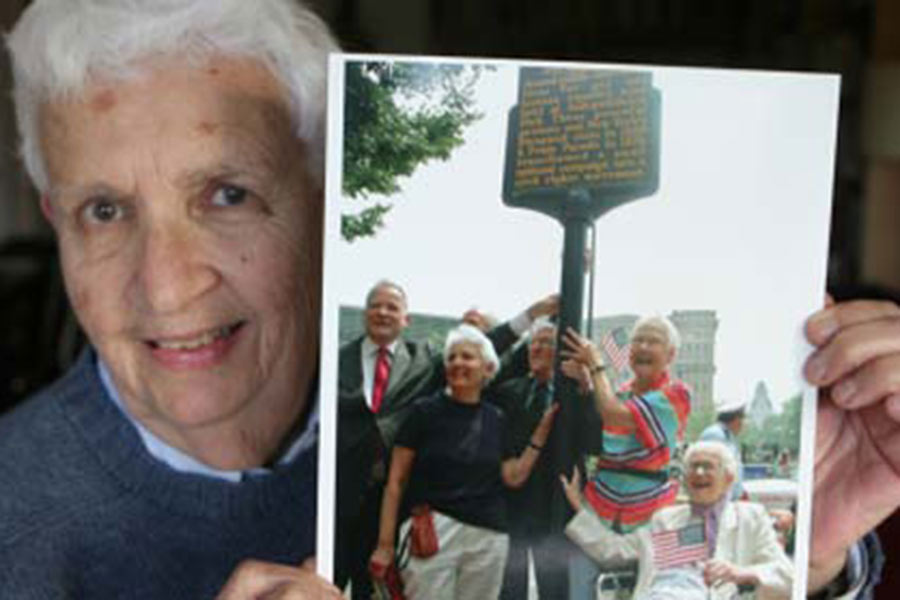About 150 people participated in the 1969 Annual Reminder Day march outside of Independence Hall — and among them was Ada Bello, who had waited several years for her opportunity to march in the history-making demonstration.
Bello, who was 36 at the time of that march, had come to the United States from Cuba in 1957 to attend Louisiana State University. She moved to Philadelphia five years later and was eager to get involved in the gay-rights movement, but had to keep her work behind the scenes for a number of years.
“It was better if you were going to do this if you were a citizen because you obviously had more protection,” she said. “I became a citizen in 1968 so the next year I decided to march.”
Bello noted that many of the participants grappled with real fears about family rejection or employment termination for their role in the march.
“A lot of the people who marched in Philadelphia, particularly in the first demonstration, came from New York or D.C. because a lot of the local people didn’t feel very comfortable with jobs and family, the usual things,” she said, noting that, while her situation was different, she still shared some of the marchers’ concerns. “That wasn’t really my case because I had no family here and I was working for a university that was a relatively liberal environment — I had no direct contact with students and that was a concern for a lot of the teachers who wanted to be involved. But, intellectually, you don’t abandon those feelings and fears in just a few months; you eventually get to the point where you know you’re on firm ground, but emotionally you still remember a time when you weren’t.”
Bello was a founding member of the Philadelphia chapter of Daughters of Bilitis, which later transitioned into the Homophile Action League. She said her motivations for joining that organization mirrored her reasons for participating in the Reminder Day march.
“We were a bunch of women, mostly professionals, who knew we weren’t breaking the law and shouldn’t have to scurry around back alleys. Our bars could be raided at any time. It was rough and it built anger at the injustice we saw,” Bello said. “We didn’t see ourselves as negative members of society; in fact, we were all very much law-abiding, productive individuals. We wanted to change the conditions, to have the same rights as anybody else. That was very much the aim of the whole movement at that time.”
Bello helped put out the organization’s newsletter, which announced the march in advance, although much of the planning was done outside of Philadelphia, she said. During the march, she said she wove in and out of the line so she could hear reactions to the event for a newsletter story.
“I sort of walked around the perimeter to hear what people were saying and I was surprised the comments were almost 50/50, positive and negative,” she said. “There had been an antiwar march right beforehand so perhaps the audience left behind was more liberal, but overall it definitely was not a bad reaction.”
In accordance with the march’s policies, Bello donned a skirt for the event.
“I wouldn’t have been allowed to march otherwise,” she explained.
The dress and behavioral code championed by organizer Frank Kameny was initially fitting, Bello said, although the tenor of the movement began to shift in the late 1960s.
“I think that was the right approach in the beginning, maybe in ’65 or ’66, but by ’69, things were starting to change,” she said. “The claim of the movement sort of changed from ‘We deserve’ to ‘We demand.’ I remember some people were trying to march hand in hand as couples and the organizers, particularly Frank, prohibited that. But I think even he realized that the tactics — which had been successful up to that point, I don’t challenge that — had to be changed. And that was the last march.”
While the movement became more revolutionary in the coming years, Bello said, the foundation that made that shift possible was laid at such events as the Annual Reminders.
“Without the Reminders, there very well might not have been a Stonewall,” she said. “Stonewall definitely brought about a tremendous change, but that was a process that started years before.”
